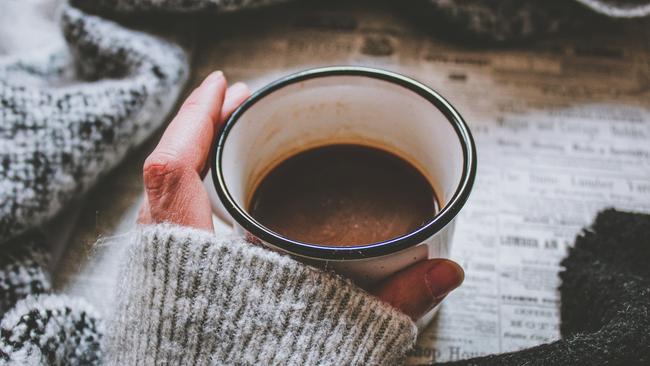12 winter wellness myths you need to stop believing
Are you falling for these winter health myths? We explore the science behind some of the most common winter wellness myths.
Health
Don't miss out on the headlines from Health. Followed categories will be added to My News.
Never go to bed with wet hair. Cold weather makes you sick.
These age-old health tips have been passed down through generations but not all of them are grounded in science.
As the winter chill sets in, it’s crucial to sort fact from fiction about staying well during the colder months.
We debunk 12 common myths to help you stay healthy this winter.
1. You don’t need to hydrate as much in winter
Reality: Constant indoor heating and harsh, dry air can lead to dehydration, making it just as important to stay hydrated in winter as you would in summer.
The side effects of dehydration can include headaches, dizziness, hunger, extreme thirst and tiredness.
While daily water recommendations vary, women should consume around eight glasses of water daily, according to the Australian Dietary Guidelines.
2. You don’t need sunscreen in winter
Reality: UV rays can still damage your skin, even on overcast winter days.
Even on cloudy days, UV rays are still around.
So, as it gets colder, don’t skip the SPF – protecting your skin is a year-round must.
3. Cold weather makes you sick
Reality: While cold weather doesn’t cause illness directly, spending more time indoors in close contact to others can increase your risk of exposure to viruses and bacteria.
Research shows taking simple steps such as handwashing can help prevent the spread of illness such as common colds.
And as for the flu, one of the best defences you can get is a vaccination.
4. You don’t need to exercise as much in winter
Reality: Regular exercise is just as important for overall health in winter as it is in any other season.
In fact, studies have found regular physical exercise can promote the immune response and reduce your chances of getting sick.
Staying active during the colder months can involve sticking to a regular routine of walking, yoga and strength training.
5. You lose most of your body heat through your head
Reality: While it’s essential to keep your head warm, the idea that you lose most of your body heat through your head alone is not true.
We lose seven to 10 per cent of our body heat through our heads if our heads are uncovered, according to research published in the British Medical Journal.
But don’t throw away your beanie just yet.
Heat loss depends on the amount of exposed skin, so rug up and enjoy winter.
You could even try the Danish-concept of Hygge – which has been described as taking time out to enjoy a sense of comfort, cosiness and warmth, especially during the colder months.
6: Vitamin C tablets will cure your cold
Reality: Vitamin C offers a host of benefits and is an important part of any healthy diet, but it is sadly not a magic bullet for colds.
Many of us reach for the vitamin when we start to feel sniffly, however adequate vitamin C from our food should be enough to protect immunity.
Adults should consume around 45mg of vitamin C each day to reap the benefits – about half an orange or a cup of strawberries.
7: You can get the flu from the flu shot
Reality: Although you may feel a bit under the weather after a vaccination, it is made with an inactivated virus meaning you can’t catch the flu from it.
Vaccinations are safe, and side effects such as fever, fatigue and muscle aches, while uncomfortable, are normal.
8: Drinking alcohol keeps you warm
Reality: While a winter tipple might feel comforting and warm, the reason is because it makes blood rush to the skin’s surface.
Alcohol opens up the blood vessels in your skin, which actually allows heat to escape.
Imbibing can also reduce shivering, which is a function the body uses to try to heat itself.
9: Allergies go away in the winter
Reality: Pollens aren’t as much of an issue in the colder months, but there are still plenty of allergens indoors.
Spending more time inside in winter increases exposure to dust, pet hair and mould.
Treatment and prevention includes taking allergy medication, using an air purifier, and regularly cleaning your home to remove dust.

10: Drinking hot liquids warms you up
Reality: Having a cosy cuppa might be a beloved winter pastime, but it could actually be counter-productive to keeping you warm.
Hot drinks can raise your body temperature, which makes the bodywork overtime to cool itself down.
This is why you might sweat after a nice English breakfast, and it could result in an overall lower body temperature.
11: Winter nose bleeds should be stopped by tilting your head back
Reality:Nose bleeds, more common during winter because of cold, dry air, should not be fixed by tilting your head back.
Doing so can lead to blood running down your throat and into your stomach, which can irritate your belly and make you sick.
Instead, pinch your nose and sit up straight with your head in a neutral position.
This will allow the blood to clot, stopping the bleed.
12: Never go to bed with wet hair
Reality: While going to bed with wet hair may be uncomfortable, the idea that sleeping with wet hair can cause colds or other illnesses is unfounded.
Colds are caused by viruses, not by sleeping with damp hair.
The primary concern with sleeping on wet hair is that it can lead to tangling and breakage due to friction against the pillowcase.
But wet hair is more susceptible to damage and frizz so you could wake up with a serious case of bed hair.


